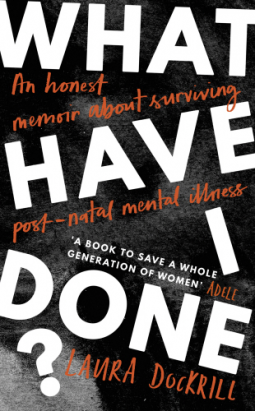What do you think?
Rate this book


448 pages, Hardcover
First published April 23, 2020
(Short version) If you suffer from anxiety, it doesn’t mean that you are a ‘worrier’. That you’re a control freak. A nervous person. Jumpy. Shy. Scared to meet new people.The majority of the book is written in a very chaotic style, probably to reflect the author's psychotic state of mind. But then, all of a sudden, it is a year later and she is revisting the hospital she spent two weeks in. Then back to the slow recovery. I understand that symptoms don't just appear and go away, but the constant repetition didn't make for an enjoyable reading experience.
(Long version)